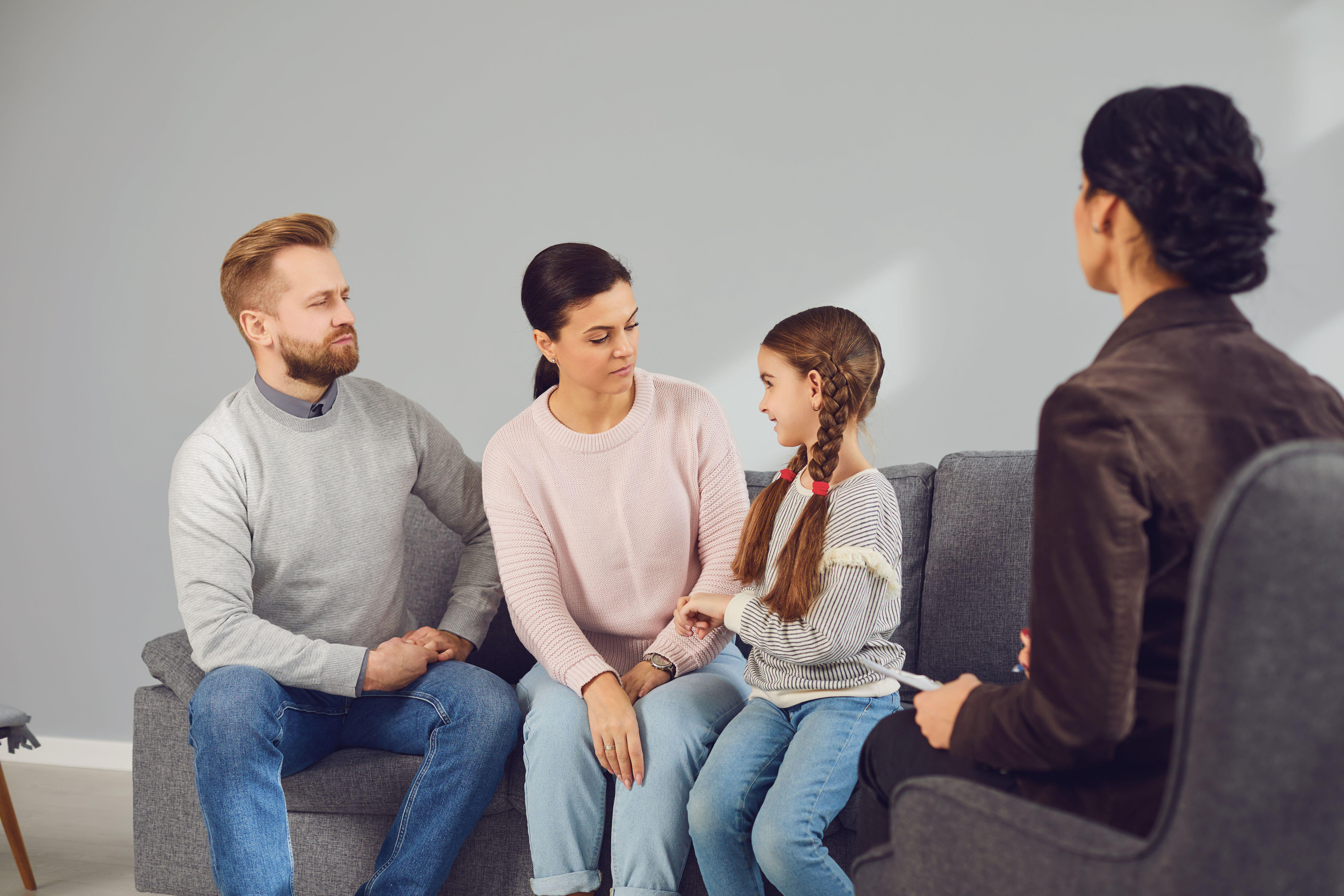Jessica Alba has opened up about going to therapy with her daughters, Honor, 14, and Haven, 10.
The 41-year-old told Glamour that around puberty, “They started to sort of shut down and get really like, ‘I don’t want to talk anymore.’
And I’m like, ‘We’re not doing this. We’ve got to keep a line of communication here. How can I be a better parent to you? How do you want me to talk to you? Don’t shut me out.’”
Alba, who also has a 4-year-old son, Hayes, with husband Cash Warren, only has good things to say about the experience of family therapy.
“First of all, this person [the therapist] has studied human behaviour and they’re good at it. And they have no relation to you so they can be really objective and you create a safe space for your kid to really candidly tell you what’s not working about your parenting,” the actor told the magazine.
“I was like, ‘Look, I’m not perfect. I’m not going to know all the answers, but I want to be a great parent to you. And what you like and don’t is different from what your sister likes and doesn’t like.
And I’m going to make mistakes. Here’s a safe space, you can’t get in trouble – let me know what I’m doing wrong, or what you would like me to do differently.”
Family therapy comes under the umbrella of ‘systemic therapy’ – where you focus on a group of people and their thoughts and feelings, rather than just the individual. Here’s everything you need to know about it…
What is family therapy?
Family therapy looks at “the way families are put together”, explains Dr Marianne Trent, clinical psychologist with Good Thinking Psychological Services and author of The Grief Collective.
“We carry with us our own stories of being parents, and our own thoughts towards trauma and chaos and catastrophe.
And sometimes we can raise our children, or interact with our parents in ways that are not necessarily about stuff that’s happening right now” – which is where Trent suggests group therapy can come in, to help give everyone a deeper understanding of how they’re responding to situations.
She mentions a couple of ways you can do it – you can have a “systemic therapist” – where the family talks to each other and the therapist in a safe space, and there’s also a one-way mirror approach, where the professional watches from one side and gives the family room to talk, occasionally giving them ideas of questions to ask, and feedback on how they’re talking to each other.
What are the potential benefits?

“One of the benefits of family therapy is for us to think about whether – when we lose our temper, are we losing our temper because of what’s happening right now, or could it be about something we’ve experienced in the past, and can we help identify patterns of interaction?” says Trent.
It’s not just about focusing on the negatives, but she also says it can be about the things that are going well, and your strengths as a family. But alongside this, you can identify, “What are the things that we could do with a bit of help with?”
She explains it’s about being present and aware that we’re not perfect people – “None of us are, and raising children is really difficult. We have to live our own life, but we’ve got to slot our own lives around the lives of people around us.”
It’s an opportunity to emphasise that “everybody gets to shine, everybody gets to thrive, and everybody is important”, she says. “It’s important that everyone in the family feels that way, and family therapy can be a really useful way of making sure everybody has an impartial opportunity to speak.”
Psychologists can identify if someone maybe isn’t being given the space to speak as much as they might like to, helping the family “live more harmoniously, and really thrive as a unit”, she says.
“There isn’t a manual that comes with being human, there certainly isn’t a manual that comes with being a child or a parent.
None of us are experts at it. So any help that we can get that might help us be less blinkered, more aware, more in tune with what’s happening can be really useful.”
Who might benefit from family therapy?

“Therapy doesn’t always need to be for when there’s some sort of big problem,” suggests Trent, who says anyone can benefit from it as “ongoing support with life”.
However, she does mention there are a few scenarios where family therapy is often used. “Family therapy is really commonly used in eating disorders – not just for children and young people, but for eating disorders later in life as well. That’s because of the concept of eating disorders is often the behaviour you can see, but you’re not necessarily seeing what’s contributed to that eating disorder.”
Talking things through with a professional “can be helpful because it takes the pressure off the person who’s having the difficulties. Because it’s saying, we’ve all got a role to play in this.”
Another situation she mentions are families with separated parents. She says: “Having the opportunity to think, how is your experience of parenting our children?
How is your experience of being parented by mummy, how is your experience of being parented by daddy? Could we do that more holistically, or in a way that’s more attuned to your needs?”
Ultimately, Trent suggests you are most likely to benefit from family therapy if you try to use the tools in your day-to-day life.
“Make sure what you’re doing in the therapy room is also mapping outside into wider life,” she advises. “With any therapy, you don’t want it to be just about the therapy hour, it needs to be translating into people’s normal lives.”
How can you access it?
“[For] moderate to severe mental health difficulties impacting a young person or a member of the family, you’d do well to get a referral to an NHS mental health team,” recommends Trent, which you can do by contacting your GP.
In Trent’s experience, the majority of family therapy tends to be predominantly provided on the NHS for child and adolescent mental health services.
Otherwise, she suggests contacting Relate, saying: “That’s not free at the point of delivery, they do ask for donations.
“Then there are also private practitioners offering systemic therapy or family therapy as well. So you could use, for example, Psychology Today, to search for people offering family therapy or systemic therapy.”





